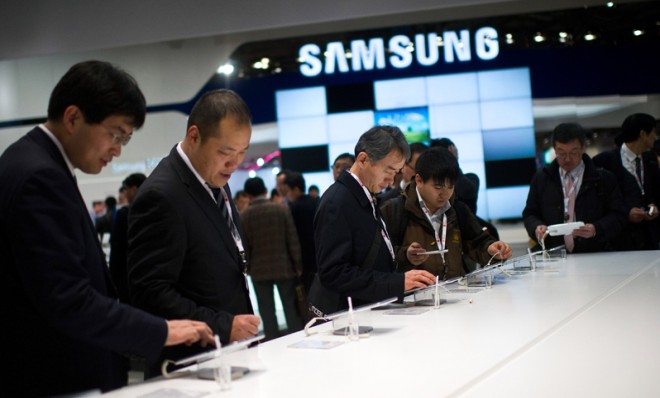Samsung's super-fast '5G' antenna: What you need to know
Gigabyte-per-second download speeds? Yes, please

A free daily email with the biggest news stories of the day – and the best features from TheWeek.com
You are now subscribed
Your newsletter sign-up was successful
If the ability to download every season of Game of Thrones in a few seconds is the kind of thing that blows your hair back, you're in luck. Samsung has reportedly been hard at work building a lightning-fast "5G" antenna that would make gigabytes-per-second file-transfers on your phone a legitimate possibility. Here's what you need to know about it:
What is 5G exactly?
Wireless networks like AT&T, Verizon, and T-Mobile rely on spectrum bands to transfer information through the air. The latest and fastest cellular standard in the U.S., 4G, operates in the upper 700 MHz spectrum.
The Week
Escape your echo chamber. Get the facts behind the news, plus analysis from multiple perspectives.

Sign up for The Week's Free Newsletters
From our morning news briefing to a weekly Good News Newsletter, get the best of The Week delivered directly to your inbox.
From our morning news briefing to a weekly Good News Newsletter, get the best of The Week delivered directly to your inbox.
Samsung says it's built an antenna that can transfer data at a rate of up to 1.056 GBps using the 28 GHz spectrum band. Yes, that means over a gigabyte of data per second — "several hundred times faster" than current 4G networks, notes Mashable.
Translation: Web pages that boot up instantly. Or streaming movies in glorious HD without so much as a hiccup.
(N.B.: 5G as an official standard hasn't been established yet, but Samsung is presumably using it here to characterize whatever high-speed network comes after 4G.)
How does it work?
A free daily email with the biggest news stories of the day – and the best features from TheWeek.com
The technology relies on an array transceiver using 64 different antenna elements. According to Samsung, it's kind of like how "increased water flow requires a wider pipe." So far, the new antenna works for distances up to 2 kilometers, or a little over a mile, and could theoretically be implemented in antenna towers nationwide.
What would a new high-speed network entail?
Hopefully, a 5G network will require fewer ugly cell towers adorning city skylines.
Buildings, physical geography like hills and mountains, and even atmospheric disturbances like rain or snow can interfere with a network's signal. That's one of the many reasons why cell towers are built high up. But Samsung's breakthrough reportedly eliminates "atmospheric attenuation," or basically when radio signals get absorbed by rain and snow.
In addition, it's believed that the key to building faster networks — especially indoors — lies in putting a larger number of smaller stations close to where users live, Jens Zander, professor and dean at KTH Royal Institute of Technology, tells PC World.
So can I expect blazing-fast speeds on my phone?
Theoretically, yes. In actuality, well... we'll just have to see. Matt Peckham at TIME notes that just because the upper threshold for speed exists doesn't mean phone- and tablet-owners will be able to reach it:
The trouble's not that my 4G smartphone or tablet connection isn't fast enough (in theory) to instantly stream high quality videos and music — even a 3G connection's capable of competently handling services like Netflix or Spotify, after all — it's that these connections often live down to worst-case expectations because the towers are simply overcrowded.
The reason cell service providers are putting the kibosh on unlimited data plans (and raising usage costs for their real bugaboo, data tethering) has as much to do with crowd control as scraping a little extra from our purses. It goes without saying, but I'll say it anyway: The faster you make mobile communication technology, the more likely people are to use it and the more likely the network’s going to choke. [TIME]
When is 5G coming?
Samsung says the antenna tech will be ready to commercialize seven years down the road, or around 2020. If we're lucky, maybe Game of Thrones will even be done by then.
-
 How Democrats are turning DOJ lemons into partisan lemonade
How Democrats are turning DOJ lemons into partisan lemonadeTODAY’S BIG QUESTION As the Trump administration continues to try — and fail — at indicting its political enemies, Democratic lawmakers have begun seizing the moment for themselves
-
 ICE’s new targets post-Minnesota retreat
ICE’s new targets post-Minnesota retreatIn the Spotlight Several cities are reportedly on ICE’s list for immigration crackdowns
-
 ‘Those rights don’t exist to protect criminals’
‘Those rights don’t exist to protect criminals’Instant Opinion Opinion, comment and editorials of the day